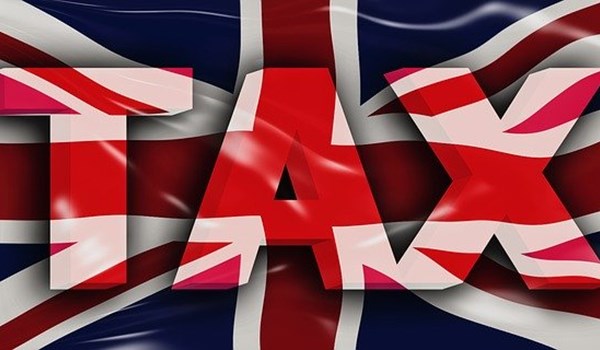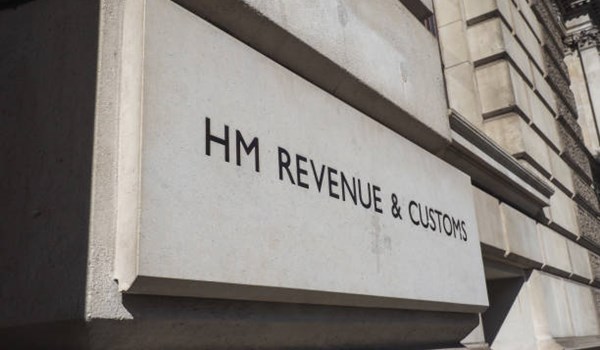
UK: New tax regime for UK non-doms
In his Spring Budget, delivered on 6 March 2024, the Chancellor announced sweeping reforms to replace the current tax regime for UK resident, non-UK domiciled individuals with a system based purely
THE Government “disagrees” with the IMF’s assertion that it must introduce a personal income tax targeting “the top 10 percent of earners” and other reforms to hit its 25 percent revenue-to-GDP goal.
#Simon Wilson, the Ministry of Finance’s financial secretary, told Tribune Business last night that the Davis administration believes there is sufficient “buoyancy” in the current tax system to achieve its revenue ratio ambitions. This came as the International Monetary Fund (IMF) called for changes that would generate revenue increases equal to 3.7 percent of economic output by 2027-2028.
#The Washington D.C-based Fund, in its full Article IV report on The Bahamas that was released on Friday, urged this nation to exploit the G-20/OECD drive for a 15 percent minimum global corporate tax to craft and implement such a tax to suit this nation’s own needs.
#And, besides imposing a personal income tax on the highest 10 percent of income earners, the IMF called for such a reform to be accompanied by a 5 percent levy on capital gains, dividends and interest income. It also suggested that the marginal personal income tax rate equal that of the corporate tax to prevent companies avoiding the latter by paying our profits as salaries to shareholders and top executives.
#Combined with removing the $60,000 real property tax cap for owner-occupied residences and increasing the rates for “higher value” homes, as well as “eliminating tax expenditures” on gambling which does not attract 10 percent VAT, the Fund suggested this reform package could generate extra government revenue equal to 3.7 percent of GDP – almost $540m based on today’s figures – in four years’ time.
#The Davis administration has already set a target for government revenues to equal 25 percent of GDP, or economic output, by the 2025-2026 fiscal year. However, the IMF implied that without the reform package it has outlined, The Bahamas will never achieve that goal as it unveiled projections showing this ratio would remain stubbornly just below 22 percent through 2032-2033.
#And, as a result, the IMF also forecasts that the Government will fail to achieve its objective of eliminating the fiscal deficit from 2024- 2025 onwards – a year in which it currently projects a $109.2m Budget surplus. Instead, in the absence of any adjustments, it is predicting that The Bahamas will continue to run deficits – albeit declining slightly every year to less than 1 percent of GDP – through 2032-2033.
#The IMF acknowledged that implementing corporate and personal income tax regimes could be a hard sell in The Bahamas, given that there is no history of such taxation and its implementation would require “significant investment” in training personnel as well as technology to administer such systems.
#Should this prove “infeasible”, the IMF suggested The Bahamas raise the VAT rate to 15 percent – a 50 percent increase in percentage terms – as an alternative although it admitted such a move would deepen the regressive taxation where lower income persons give proportionally more of their income to taxes than their wealthier counterparts.
#“Tax and expenditure reforms would improve the progressivity of the fiscal system and reinforce debt sustainability. The implementation of the OECD global minimum corporate tax increases the urgency of introducing a well-designed corporate income tax and there is scope to increase the progressivity and efficiency of the tax system,” the IMF’s Article IV report said.
#Outlining what Bahamian tax reform should look like, it argued: “Introduce a corporate income tax. Replacing the Business Licence fee with a 15 percent tax on corporate profits for large corporations could raise an additional 1.4 per- cent of GDP and would be compatible with the OECD’s global minimum tax rules.
#“Designing the prof- its tax as a cash flow tax that allows full expensing of investment, and includes an unlimited carryover of losses, would simplify implementation and prevent disincentivising business investment. A lower tax rate could be provided for SMEs (small and medium-sized businesses) instead of retaining the Business Licence fee for small entities.”
#Much, if not all, of this was included for consideration in the Government’s corporate income tax ‘green paper’ that required companies, industries and others to provide feed- back by end-August 2023. It suggested that, in the majority of cases, a corporate income tax would replace the existing Business Licence regime to as to avoid double taxation.
#Meanwhile, the IMF’s Article IV report called for corporate income tax to be accompanied by the personal variety but only for senior management executives and those in high-earning positions. “The personal income tax would have high standard deduction so as to impact only the top 10 percent of earners and would be accompanied by a 5 percent tax on capital gains, dividends and interest income,” the IMF said.
#“Setting the marginal personal income tax rate equal to that of the corporate income tax rate would help reduce avoidance through the re-characterisation of profits as labour income and would raise around 2 percent of GDP annually.”
#Between corporate and personal income tax, the IMF is forecasting that The Bahamas could raise extra revenue equal to a combined 3.4 percent of GDP – equivalent to just over $495m at today’s economic output. This, it predicts, will enable the Government to both beat its 25 percent revenue-to-GDP target and eliminate the fiscal deficit with a sustainable Budget surplus from 2026-2027 onwards.
#Mr Wilson, though, last night reaffirmed that the Government is not eyeing the implementation of
#personal income tax in any form. And he reiterated its continued belief that expanding economic activity, combined with better administration and compliance/enforcement, will generate ever-increasing revenue yields to make the IMF’s reform package unnecessary.
#“That’s their view. That’s not our own view,” the financial secretary added of the IMF. “I think the mid-year Budget will demonstrate that it’s not necessary to get us to the 25 percent revenue-to- GDP ratio. We believe the current tax system has the buoyancy, better compliance to get us to 25 percent or more.
#“We’ve been pretty successful so far but there’s more work to be done. We think the current tax system with real property tax, VAT and Business Licence fees, the work we’ve done in those areas, will demonstrate there’s more. They’re [the IMF] saying that but we don’t think so. We disagree. The Government has made it very clear it’s not at this time considering personal income tax.”
#Tribune Business sources have recently suggested that the Government may announce plans for the introduction of a 15 per- cent corporate income tax, but only on those entities that meet the qualifying G-20/OECD criteria as part of multinational groups with annual turnovers of 750m euros or more, in the upcoming 2024-2025 Budget that will be unveiled during the last week of May.
#Mr Wilson did not con- firm this, but said the Government will likely make a corporate income tax-related announcement in the mid-year Budget due by the end of this month as “we’ll have a much better idea of what shape or form” such a levy may look like then. He added that designing and structuring a corporate income tax system for The Bahamas may now only be 12-18 months away.
#“We are progressing quite well, quite well,” he told this newspaper. “During the mid-year Budget we are likely to make an announcement. We still have to do some more work, but we believe that certainly by the mid- year Budget, which is due by the end of February, we’ll have a much better idea of what shape or form this will take.”
#Asked how far away corporate income tax implementation may be, Mr Wilson replied: “Any corporate income tax will be building on the Business Licence regime, so it’s not two to three years [away]; it’s maybe 12-18 months. Whatever we do, it has to be done to meet out inter- national obligations.” The Bahamas is among 138 countries already signed on to comply with the G-20/ OECD minimum corporate tax initiative.
#“There is scope to increase revenues from other sources should the proposed fiscal measures prove difficult to implement or macroeconomic conditions worsen and widen the fiscal deficit,” the IMF said. “The introduction of corporate and personal income tax regimes would require broad public support as well as a significant investment to build human and technological capacity to administer the taxes.
#“In the event that introducing a corporate and personal income tax proves infeasible, the Government could introduce excise taxes on energy to reduce emissions or raise the VAT rate to 15 percent, in line with regional peers.
#“However, further increases in indirect taxes would be regressive and would need to be partially compensated with an increase in social transfers for the poor. Should economic activity slow faster than expected, the pro- posed tax reform could prioritise less pro-cyclical measures while the authorities could phase-in or delay the increase in expenditure measures until revenues recover.”
#Elsewhere, the IMF suggested its deficit and fiscal forecasts for the current Budget year are “more realistic” than the Government’s even though the latter is sticking to its $131.1m deficit target that is equivalent to 0.9 per- cent of GDP. The Davis administration is ultimately targeting a deficit equal to 2.1 percent by 2026-2027, with measures including “revaluing real estate in the Family Islands for property tax”.
#“Assuming more realistic revenue forecasts, the fiscal deficit is likely to be closer to 2.6 percent of GDP in 2023-2024,” the IMF reiterated. Over the medium-term, central government debt would fall to 80 percent of GDP by 2026- 2027 and gross financing needs would remain high at around 20 percent of GDP for the next several years.
#“Even though, under this path, debt is judged to be sustainable, a faster reduction in debt would lessen the risk of sovereign stress, lower the interest burden and reduce the current account deficit.” The Government is also aiming to find extra capital spending from repurposing fixed- cost recurrent expenditure equal to 0.5 percent of GDP despite an aging population.
#In response, the Government said it plans to “to launch a strategic review of the tax framework in 2024”. The IMF added: “They believe that their deficit target of 0.9 per- cent of GDP for 2023-2024 is attainable with existing taxes, improved compliance in VAT and property taxes.
#“New taxes such as the hotel condominium tax and the tourism environmental tax, in addition to the recent changes to existing taxes, including extending the Business Licence fee to exempt companies, higher cap on real property taxes, are also expected to bolster revenues.
#“Furthermore, additional streamlining of tax expenditures and impend- ing adjustments to large multinational corporations’ taxation in the context of the OECD Pillar II should generate additional medium-term revenues as a percentage of GDP.”

In his Spring Budget, delivered on 6 March 2024, the Chancellor announced sweeping reforms to replace the current tax regime for UK resident, non-UK domiciled individuals with a system based purely

In recent years, there has been a significant surge in the number of family offices worldwide, tripling since 2019 and triggering intensified competition among private equity firms, hedge funds, and

HMRC has intensified investigations into inheritance tax evasion, launching 2,029 inquiries between April and November 2023. The frozen inheritance tax threshold and rising property prices have led

South Korea is preparing to lift its ban on institutional cryptocurrency trading, signalling a significant shift in the country’s crypto market. The Financial Services Commission (FSC), South Korea’s